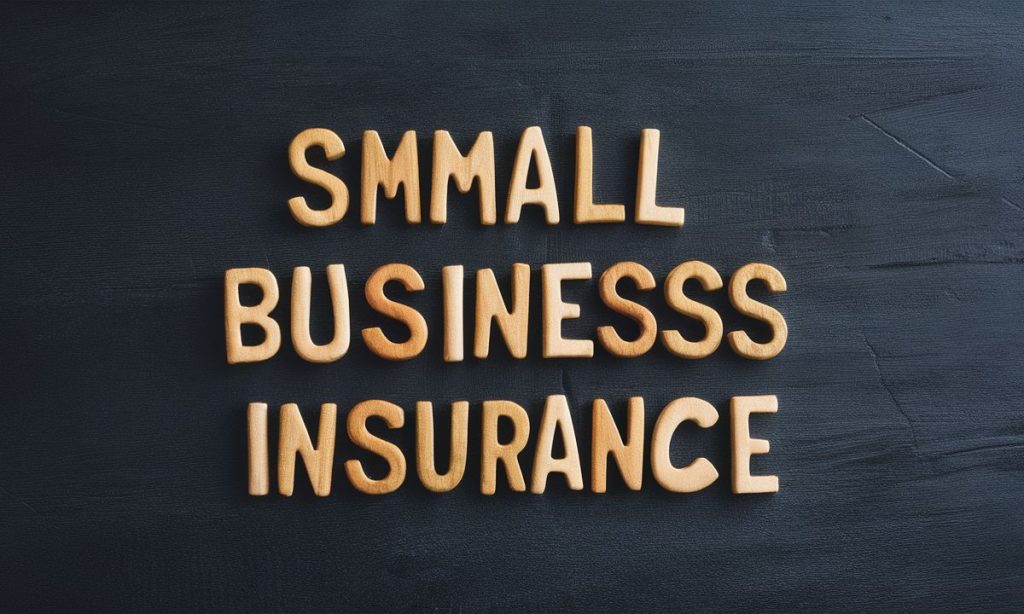Running a business in Pennsylvania comes with unique challenges and responsibilities. Whether you’re operating a small shop in Philadelphia, a tech startup in Pittsburgh, or a construction company in Harrisburg, protecting your business with the right insurance coverage is essential. Small business insurance in Pennsylvania provides financial protection against unexpected events, lawsuits, property damage, and other risks that could threaten your company’s survival.
What is Small Business Insurance in Pennsylvania?
Small business insurance is a collection of coverage policies designed to protect Pennsylvania business owners from financial losses. It acts as a safety net when accidents happen, employees get injured, or someone files a lawsuit against your company. In Pennsylvania, having proper insurance isn’t just smart—it’s often legally required depending on your business type and number of employees.
Pennsylvania businesses face specific risks including harsh winter weather, property damage, liability claims, and employee-related incidents. Commercial insurance policies help cover medical expenses, legal fees, property repairs, and lost income. Without adequate coverage, a single lawsuit or disaster could force your business to close permanently.
Types of Small Business Insurance Available in PA
Pennsylvania business owners have access to several insurance types, each serving different protection needs:
General Liability Insurance covers third-party bodily injury, property damage, and advertising injury claims. If a customer slips in your store or you accidentally damage client property, this policy responds.
Property Insurance protects your business building, equipment, inventory, and furniture from fire, theft, vandalism, and weather damage. Pennsylvania’s winter storms make this coverage particularly valuable.
Workers Compensation Insurance pays medical bills and lost wages when employees get hurt on the job. This coverage is mandatory in PA for most businesses with employees.
Professional Liability Insurance (also called errors and omissions insurance) protects service-based businesses from negligence claims, mistakes, and failure to deliver promised services.
Commercial Auto Insurance covers vehicles used for business purposes, including delivery vans, company cars, and work trucks.
Cyber Liability Insurance protects against data breaches, hacking incidents, and digital security failures—increasingly important for Pennsylvania businesses handling customer information.
Business Interruption Insurance replaces lost income when your business must temporarily close due to covered events like fire or storm damage.

Pennsylvania State Insurance Requirements for Small Businesses
Pennsylvania law mandates specific insurance coverages for businesses:
- Workers Compensation: Required for businesses with one or more employees (including part-time workers)
- Commercial Auto Insurance: Mandatory minimum liability limits of $15,000 per person, $30,000 per accident for bodily injury, and $5,000 for property damage
- Professional Liability: Required for certain licensed professionals including doctors, lawyers, accountants, and architects
- Disability Insurance: Businesses must provide short-term disability benefits through approved insurance carriers
The Pennsylvania Department of Insurance enforces these requirements. Operating without mandatory coverage can result in fines, legal penalties, and business closure.
How Much Does Small Business Insurance Cost in PA?
Insurance costs vary significantly based on multiple factors. Here’s a breakdown of average annual premiums for Pennsylvania small businesses:
| Insurance Type | Average Annual Cost in PA | Coverage Amount |
| General Liability | $400 – $1,500 | $1M per occurrence |
| Property Insurance | $500 – $2,000 | Varies by property value |
| Workers Compensation | $0.75 – $2.74 per $100 payroll | Statutory limits |
| Professional Liability | $500 – $3,000 | $1M per claim |
| Commercial Auto | $1,200 – $2,400 | State minimum to $1M |
| Cyber Liability | $1,000 – $7,500 | $1M coverage |
Cost factors include:
- Business location (Philadelphia costs more than rural areas)
- Industry risk level (construction pays more than retail)
- Number of employees
- Annual revenue
- Claims history
- Coverage limits and deductibles
- Years in business
A restaurant in Pittsburgh might pay $8,000 annually for comprehensive coverage, while a home-based consulting business could pay under $1,000.
Top Insurance Providers for Small Businesses in Pennsylvania
Several reputable carriers serve Pennsylvania’s small business market:
The Hartford offers comprehensive packages with excellent customer service and specialized industry programs.
Progressive Commercial provides competitive rates for newer businesses and easy online quotes.
State Farm delivers personalized service through local agents throughout Pennsylvania.
Nationwide specializes in multiple policy discounts and industry-specific coverage options.
Travelers offers robust coverage for established businesses with complex needs.
When selecting a provider, compare coverage options, premium costs, customer reviews, financial strength ratings, and local agent availability. Pennsylvania business owners should work with licensed agents who understand state-specific requirements.
Industry-Specific Insurance Needs in PA
Different Pennsylvania industries require tailored coverage:
Restaurants and Food Services need general liability, property insurance, workers compensation, liquor liability (if serving alcohol), and food contamination coverage.
Retail Stores require property insurance for inventory, general liability for customer injuries, crime insurance for theft, and business interruption coverage.
Construction Companies must carry workers compensation, commercial auto, general liability with high limits, contractors’ equipment insurance, and builder’s risk policies.
Healthcare Providers need professional liability (medical malpractice), HIPAA compliance coverage, general liability, and cyber liability insurance.
Technology Companies should prioritize cyber liability, professional liability, business interruption, and intellectual property protection.
How to Choose the Right Small Business Insurance in Pennsylvania
Selecting appropriate coverage requires careful assessment. Start by identifying your specific business risks. Consider what could go wrong—customer injuries, property damage, employee accidents, lawsuits, or data breaches.
Evaluate your assets including buildings, equipment, inventory, and intellectual property. Calculate potential financial losses if these assets were damaged or destroyed. Review Pennsylvania’s legal requirements for your industry and ensure compliance.
Compare quotes from multiple carriers to find competitive rates. Don’t simply choose the cheapest option—evaluate coverage quality, policy exclusions, customer service reputation, and claims handling speed.
Work with licensed Pennsylvania insurance agents who understand local market conditions. They can identify coverage gaps and recommend appropriate policy limits. Bundle multiple policies with one carrier to receive discounts ranging from 10-25%.
Review your coverage annually as your business grows and changes. Update policies when you hire employees, purchase equipment, expand locations, or add new services.

Common Claims and Coverage Scenarios in PA
Pennsylvania businesses frequently file claims for these situations:
Slip and Fall Accidents: A customer falls on icy sidewalk outside your store. General liability covers medical bills and legal defense costs averaging $20,000-$50,000.
Winter Storm Damage: Heavy snow collapses your roof, damaging inventory and equipment. Property insurance pays for repairs and replacement, potentially covering $100,000+ in losses.
Employee Injury: A warehouse worker injures their back lifting boxes. Workers compensation covers medical treatment and lost wages, with claims averaging $40,000.
Data Breach: Hackers steal customer credit card information from your system. Cyber liability covers notification costs, credit monitoring, legal fees, and potential lawsuits.
Vehicle Accident: Your delivery driver causes an accident, injuring another person. Commercial auto insurance covers medical expenses and vehicle repairs up to policy limits.
Having adequate coverage prevents these incidents from bankrupting your Pennsylvania business.
How to Get Small Business Insurance Quotes in Pennsylvania
Obtaining quotes is straightforward when you follow these steps:
Step 1: Gather business information including legal business name, physical address, number of employees, annual revenue, years in operation, and detailed business description.
Step 2: Contact multiple insurance providers through online quote forms, phone calls to local agents, or independent insurance brokers who represent multiple carriers.
Step 3: Provide accurate information about your operations, property values, payroll amounts, and prior claims history. Dishonest information can void coverage later.
Step 4: Compare proposals carefully, examining coverage limits, deductibles, exclusions, premium costs, payment options, and policy terms.
Step 5: Ask questions about anything unclear. Understand what’s covered, what’s excluded, and how claims are handled.
Step 6: Purchase coverage and maintain proof of insurance for licensing, contracts, and compliance purposes.
Most Pennsylvania businesses receive quotes within 24-48 hours. Some simple policies can be purchased online immediately.
Pennsylvania Small Business Insurance Tax Deductions
Business insurance premiums are generally tax-deductible as ordinary business expenses. This reduces your taxable income and overall tax burden.
Deductible insurance types include:
- General liability premiums
- Property insurance costs
- Professional liability expenses
- Workers compensation premiums (except for business owners in some cases)
- Commercial vehicle insurance
- Business interruption coverage
- Cyber liability premiums
Record-keeping requirements: Maintain detailed records of all premium payments, policy documents, and insurance-related expenses. Separate personal insurance from business insurance in your accounting system.
Pennsylvania business owners should consult with certified public accountants (CPAs) familiar with state and federal tax laws. They can maximize deductions while ensuring compliance with IRS regulations. Don’t miss these valuable tax savings that can reduce insurance costs by 20-30% depending on your tax bracket.
Why Pennsylvania Small Businesses Need Insurance Coverage
Pennsylvania’s business landscape presents numerous risks that make insurance essential rather than optional. The state’s diverse weather patterns bring heavy snowfall, ice storms, flooding, and severe thunderstorms that regularly damage business property.
Legal liability remains a constant concern. Pennsylvania follows modified comparative negligence laws, meaning businesses can be held partially responsible even when others share fault. A single lawsuit can cost $50,000-$500,000 in legal fees and settlements—expenses that destroy uninsured businesses.
Employee injuries occur frequently across all industries. Without workers compensation coverage, businesses face direct liability for medical bills, lost wages, and potential lawsuits from injured workers. Pennsylvania’s mandatory workers compensation system protects both employees and employers.
Cyber threats continue increasing as businesses digitize operations. Data breaches, ransomware attacks, and online fraud target small businesses lacking robust security. The average data breach costs Pennsylvania small businesses $200,000+ including notification expenses, credit monitoring, legal fees, and regulatory fines.
Client contracts often require proof of insurance before awarding projects. Many Pennsylvania businesses cannot operate without demonstrating adequate coverage to customers, landlords, and business partners.
Small Business Insurance Claims Process in PA
Filing insurance claims efficiently ensures faster resolution and payment. When incidents occur, follow this process:
Immediate Actions: Ensure everyone’s safety first. Provide necessary medical attention, secure the accident scene, document everything with photos and videos, collect witness contact information, and file police reports when appropriate.
Contact Your Insurance Company: Report claims within 24-48 hours. Most carriers offer 24/7 claims hotlines. Provide your policy number, incident date, detailed description, and supporting documentation.
Work with Claims Adjusters: Insurance adjusters will investigate your claim. Cooperate fully, provide requested documentation promptly, answer questions honestly, and keep detailed records of all communications.
Document Expenses: Save receipts for repairs, temporary replacements, additional expenses, and lost income. These documents support your claim and ensure proper reimbursement.
Follow Up Regularly: Stay engaged throughout the claims process. Contact adjusters weekly for status updates, respond quickly to information requests, and escalate issues to supervisors if necessary.
Pennsylvania law requires insurance companies to acknowledge claims within 15 days and make coverage decisions within 30 days. Understanding your rights helps ensure fair treatment.
Expert Tips for Reducing Insurance Costs in Pennsylvania
Smart Pennsylvania business owners implement these cost-saving strategies:
Bundle Policies: Purchase multiple coverage types from one carrier to receive package discounts of 10-25%. Business owner’s policies (BOPs) combine general liability and property insurance at reduced rates.
Increase Deductibles: Higher deductibles lower premiums significantly. If you can afford $2,500-$5,000 out-of-pocket expenses, you’ll save 15-30% annually.
Implement Safety Programs: Formal safety training, regular equipment maintenance, and workplace safety policies reduce claims and qualify for premium discounts.
Install Security Systems: Burglar alarms, surveillance cameras, fire suppression systems, and cybersecurity measures lower risk profiles and insurance costs.
Maintain Good Credit: Insurance companies use credit scores when calculating premiums. Improving your business credit can reduce costs by 20% or more.
Review Coverage Annually: Remove unnecessary coverage, adjust policy limits based on current asset values, and shop competitors every 2-3 years.
Join Industry Associations: Many Pennsylvania trade associations offer group insurance programs with discounted rates for members.
Pay Annually: Annual premium payments often cost 5-10% less than monthly installments.
Frequently Asked Questions About Small Business Insurance in PA
What is the minimum insurance required for small businesses in Pennsylvania?
Pennsylvania requires workers compensation insurance for businesses with one or more employees and commercial auto insurance meeting state minimum liability limits of $15,000/$30,000/$5,000 for business vehicles.
How much does general liability insurance cost for Pennsylvania small businesses?
General liability insurance in Pennsylvania typically costs between $400-$1,500 annually for $1 million coverage, depending on business type, location, and risk factors.
Can I operate my Pennsylvania business without insurance?
While some insurance types are optional, operating without mandatory workers compensation and commercial auto coverage violates Pennsylvania law and exposes you to fines, penalties, and personal liability for claims.
Do home-based businesses in Pennsylvania need insurance?
Yes, homeowners insurance typically excludes business activities, so home-based Pennsylvania businesses need separate business insurance to protect equipment, liability exposures, and professional services.
How often should I review my Pennsylvania business insurance coverage?
Review your insurance coverage annually and whenever significant business changes occur, including hiring employees, purchasing equipment, expanding locations, or adding new services to ensure adequate protection.
Conclusion
Small business insurance in Pennsylvania provides essential financial protection against risks that threaten your company’s survival. From mandatory workers compensation to optional cyber liability coverage, Pennsylvania business owners must carefully assess their needs and select appropriate policies. Understanding state requirements, comparing providers, and implementing cost-saving strategies helps you obtain comprehensive coverage at affordable rates.
The insurance landscape continues evolving with new threats like cyber attacks and changing legal requirements. Successful Pennsylvania businesses regularly review their coverage, work with knowledgeable agents, and prioritize protection alongside growth. Investing in proper insurance coverage today prevents devastating financial losses tomorrow. Don’t wait until disaster strikes—protect your Pennsylvania business with comprehensive insurance coverage that matches your specific needs and budget. Your company’s future depends on the protection decisions you make now.

I M, Kieran Jackson a professional writer with a passion for exploring diverse topics including technology, lifestyle, health, sports, and more. Since 2022, I’ve been working as a correspondent and sports writer for The Independent, where I’ve reported on major events like Formula 1 races in Silverstone, Monza, Zandvoort, and Las Vegas, as well as Wimbledon and Premier League football matches. My work at The Independent has been highly commended in the industry and helped me grow as a journalist. Alongside this, I run my own platform, Flavinto.com, where I personally write and publish in-depth articles on a wide range of topics. Flavinto is not just a blog for me it’s a project I’m passionate about, and my goal is to build it into a trusted brand for readers worldwide? Sy Sochil links twitter AND linkedin.









